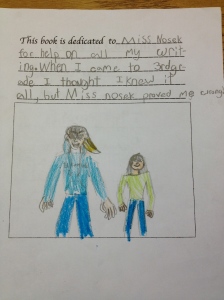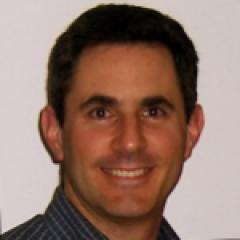Reflecting on the Unthinkable
 The tragic deaths in Newtown, Connecticut, have been difficult for me to process or respond to. The first actual writing I’ve done on the topic actually came in comments on another blog, written by Michael Petrilli. I don’t often find myself agreeing with Petrilli or the Fordham Foundation in their analysis of education practices, policies, or reform. (And I never did hear back from the foundation’s president, Checker Finn, regarding the free lunch I put up in a wager based on something he wrote about teaching).
The tragic deaths in Newtown, Connecticut, have been difficult for me to process or respond to. The first actual writing I’ve done on the topic actually came in comments on another blog, written by Michael Petrilli. I don’t often find myself agreeing with Petrilli or the Fordham Foundation in their analysis of education practices, policies, or reform. (And I never did hear back from the foundation’s president, Checker Finn, regarding the free lunch I put up in a wager based on something he wrote about teaching).
However, Petrilli’s post today took up education reform in the aftermath of the Sandy Hook school shootings, and it’s well worth reading. He offers two ideas he takes away from the tragedy:
First, we in the reform movement need to tone down any rhetoric that implies that a typical teacher isn’t committed to doing right by her or his students. This isn’t a new idea, but the heroism of the Sandy Hook teachers (and administrators) brings the point into sharp relief. That’s not to say we should relax our efforts to identify and remove ineffective teachers from the classroom. Just as there’s the occasional bad cop, there’s the occasional bad teacher; like the police force, the teaching force is much stronger without them. But neither should we ignore indications from the field that many teachers, including great teachers, have been feeling unappreciated, villainized, and blamed.
Second, we policy wonks need to remember that the issues that so animate us—like Common Core standards, value-added measures, pupil-based funding, and blended learning—are not the totality of what schools have on their plates. I used to read stories of schools practicing lockdown procedures and scoff at such behavior, considering it a bureaucratic CYA performance. Now it’s clear to me that such drills saved lives in Newtown. I am going to try to remember that “raising student achievement” is one top priority that school principals and teachers should be focused on—but it’s neither their sole priority nor exclusive concern. And it’s surely not the top item on their list this week.
It’s refreshing to hear some grounded and appreciative commentary offered up by someone whose education reform perspective often strikes me as misdirected. And, while I truly do appreciate the overall message and tone, I couldn’t help but see, even here, the seed of the problem when “policy wonks” talk about schools and teaching. So I left this comment on Petrilli’s blog, and offer it here as well, with some links thrown in.
Thank you for this reflection and perspective. I’ve been similarly challenged to write about Sandy Hook, (and I’m also the dad of two boys). I’ve also been on the inside of a school lockdown, and been on the inside a classroom practicing what to do in the event of a school shooting. In those situations, and even in the everyday interactions that make schools more relevant to students’ lives, and more humane, most of the education reform debate barely touches the things that matter most to me and my students. If I could offer one piece of advice that would help show teachers that you want to address “feeling unappreciated, villainized, and blamed” – I would offer that it’s more helpful to work on improving schools, curriculum, resources, working conditions, support, etc. It’s the problems in these areas that drive good teachers out, and turn many potentially strong teachers into under-performers. Take some advice from W. Edwards Deming, and give up the exercises in sorting, rating and ranking. Avoid “fundamental attribution error” and start looking more at the nature of the work, and the context in which it occurs.
Post script: I don’t know if or when I’ll post more on the Sandy Hook school tragedy. I find it hard to write short posts, and would find it hard to disentangle the issues and emotions around the event in a longer piece. In the meantime, I not only commend Michael Petrilli on this post, but would also like to refer readers over to my friend Larry Ferlazzo, whose tremendous energy and passion for education never cease to amaze me. Not surprisingly to anyone familiar with his work, Larry has collected a variety of resources and responses to the shootings.
This blog post has been shared by permission from the author.
Readers wishing to comment on the content are encouraged to do so via the link to the original post.
Find the original post here:
The views expressed by the blogger are not necessarily those of NEPC.
